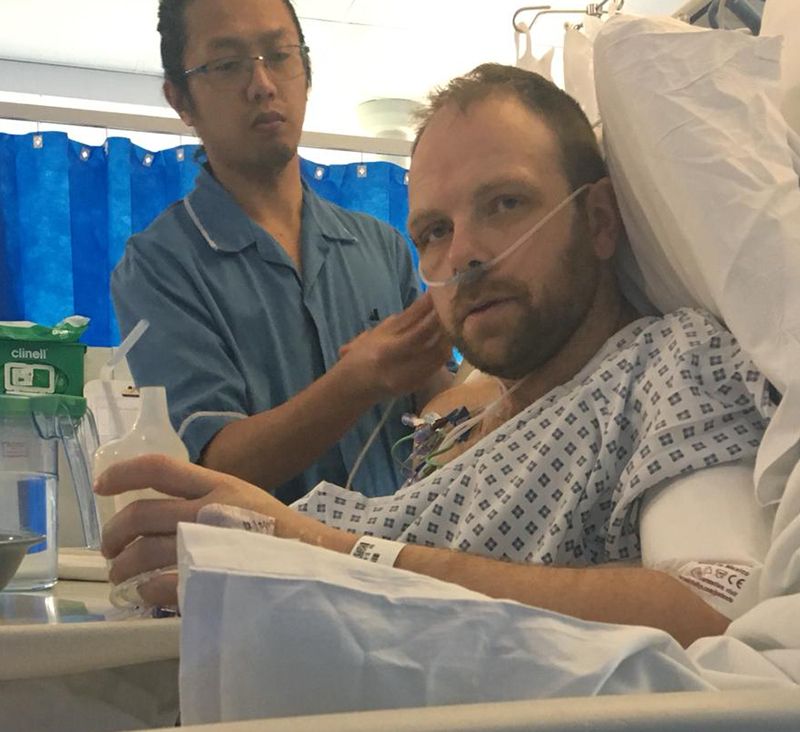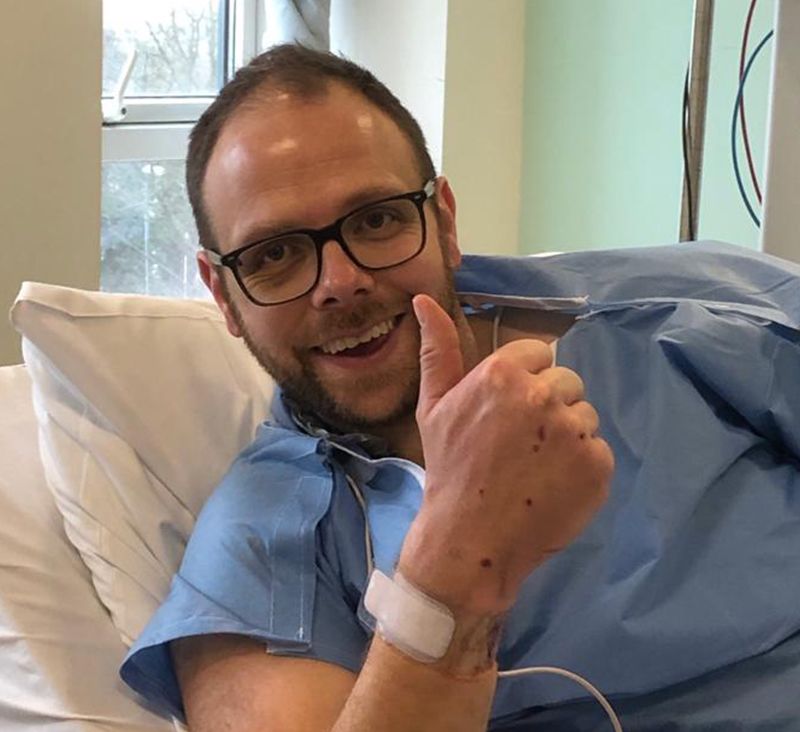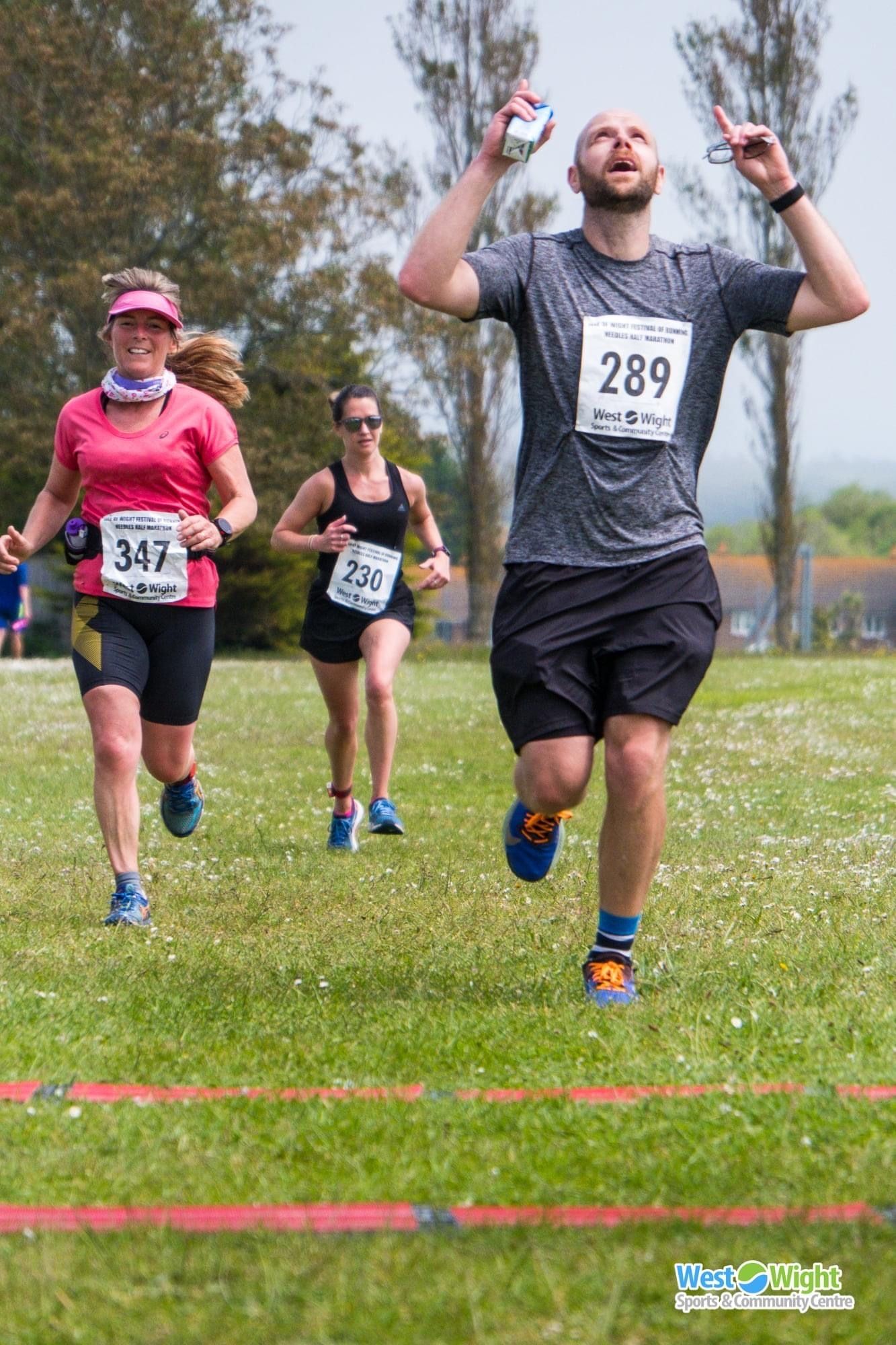Straight from the heart

Life has taught me not all goes to plan. Sometimes, it can deal you a pretty shitty card. But, if you can shift the lens, think a little differently, you can turn that shitty hand into a good (maybe even a great) hand.
On 2nd October 2022 I am running the London Marathon. It will be more than 3 years since I last completed a Marathon due to having a cardiac arrest (life hands a shitty card).
I had goals and aspirations to come back and run a sub-4 hour (the holy grail for a runner’s dream), but as I have been training for the marathon, I have picked up an injury, which means I probably won't get my time. I reflected. I could let the injury pull me down, or I can play the hand that I have been dealt and try to look at things a bit differently.
Marathon training in some ways has been a mirror of my cardiac arrest, and recovery. It hasn’t always gone to plan, but I am still in the game.
The day my heart stopped
Rewind... 12th February 2019, at the age of 34, I was walking to work. I suffered an out-of-hospital cardiac arrest (of which over 30,000 a year in the UK). The survival rate is just 1 in 10.
In 2018 I completed my first marathon, and I thought I was in the shape of my life. Running 2 - 3 times a week (sub 9 minute miles, great for me), Crossfit and Hitt classes. However, around Christmas time, I started to experience some chest pain and a tingle in my arm whilst running (classic heart attack symptoms). Heart problems didn't even enter my thoughts, why would they? These sorts of things don't happen to people my age (I have since discovered that every week in the UK, 12 apparently fit and healthy young aged 35 and under die from undiagnosed cardiac conditions). However, to be on the safe side, I went to see the doctor. Blood test results came back with elevated cholesterol (above average 7.4 total), but ECG (Electrocardiogram, is often used alongside other tests to help diagnose and monitor conditions affecting the heart) was all fine. As the episodes continued, I was referred to Cardiology, who booked me in for a CT scan (Computerised tomography scanning can be useful to help diagnose heart problems and how severe they are) .
Fast forward to 11th February 2019. I can't remember the two days prior to the event, so this is all from what people have told me... I am 6 weeks into a new job as a digital designer and heading off for my scan. Living on the Isle of Wight meant I had to get the boat to Portsmouth to get the scan. Just as my wife and I are about to board the boat, we receive a phone call from the hospital. The machine has broken. I will need to rebook.
The next day I have a cardiac arrest.
Luckily for me, a former nurse found me and after realising I had no pulse began giving me CPR (this essentially saved my life and kept oxygen flowing to my brain). After 20 mins, the first responders arrived to give me my first shock. No heartbeat. The second response arrived, and they gave me a second shock... A pulse. The paramedics made a swift decision to get me in the ambulance and get me to the hospital.
On arrival, I was in a pretty bad way. My heart was now beating. But I wasn't out of the woods. At this stage, they didn't know what state my brain was in. In the ICU I was sedated and apparently had all sorts of scans. My MRI showed that I had the lowest of brain activity. If by some miracle I was to pull through, my family were told I could have catastrophic brain damage, and to be prepared that they might have to turn off the machine.
14th February 2019. Valentine’s Day. The day I came back to my loved ones. Slowly the doctors and staff began to bring me out of sedation and I was responding. All the nurses were holding hands with bated breath (when they tried this the day before, it didn't go well). This was my last chance. But this time, something happened. I came through.



At this stage, my memory was gone and they still didn't know what had happened to my heart. I was transferred to CCU (Coronary Care Unit) where I was looked after until I was well enough to be transferred to a specialist heart hospital on the mainland. Upon arrival, and now with fully working equipment, the cardiologist found that I had a 90% blockage of the left main coronary artery, dubbed the widow maker. I was fitted with a stent and a week after my initial incident, I returned home to my wife and son.

Over time, my memory has come back and after speaking with the cardiologist he said that my fitness and age played a big part in my survival and recovery. I am lucky in that my heart pump is still working as it should with very little scar tissue. Effectively, I could return to live my life as 'normal'.
But as anyone who has been through something like this knows, life will never be normal again. I still had a long way to go to wrap my head around how a seemingly fit and healthy 34-year-old’s heart should just stop beating. Especially early days, I felt very vulnerable, I lost confidence in my body and myself. I also felt like I had pains in my chest (which can be to do with the stent settling in). Specifically one night having a panic attack, I woke up unable to breath, sweating thinking I was having a heart attack. My wife (Michelle was there for me), she and my family have been absolute rocks for me, their support and belief never wavered.


Forever grateful
I am blessed, and forever grateful, that somebody stopped to save my life. I have been able to connect with that incredible former nurse who acted so quickly (Brigette) and I am thankful for the swift medical attention provided by the NHS and the support they gave my family. Thanks to these brilliant people, my wife still has a husband, and our children have a dad.
Every day I wake up and I am presented with another day with my family – another day to live.
I have been wanting to write something ever since. But I’ve held back, wondering who would be remotely interested in my story. But drawing on the support, strength and love that we have received during my recovery and training, I have learned so much that I have to share with the world.
For the marathon, I am running for CRY (Cardiac Risk in the Young), who offer screening and help raise awareness in the young. If I can help join their campaign, it might save someone’s life.
My name is Nick Dover, and I am a cardiac arrest survivor this is my journey to the start line. Straight from the heart.

